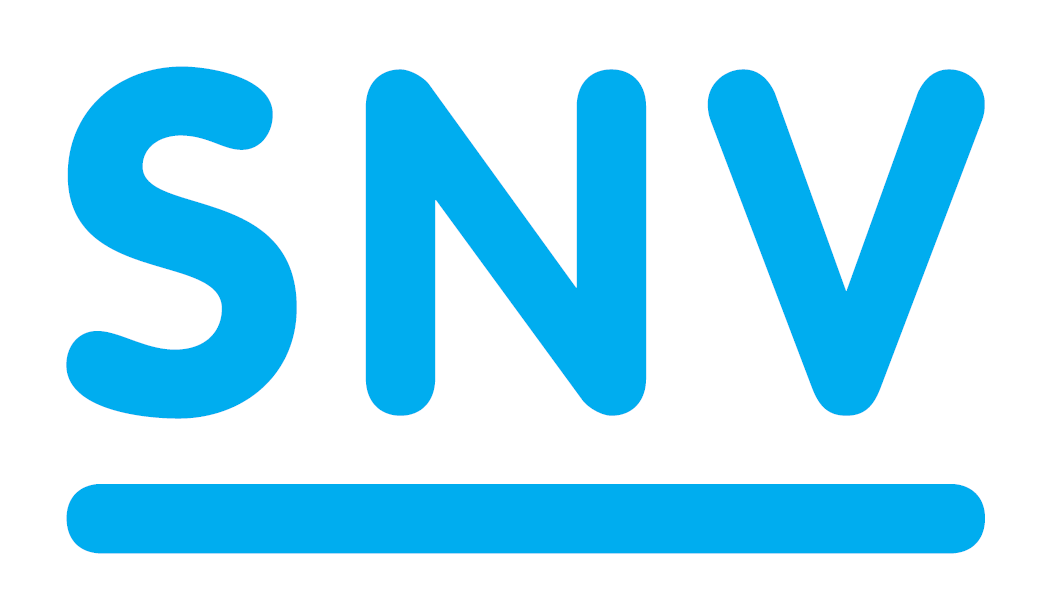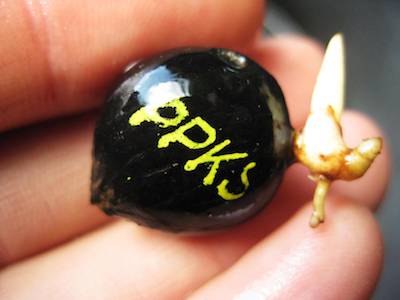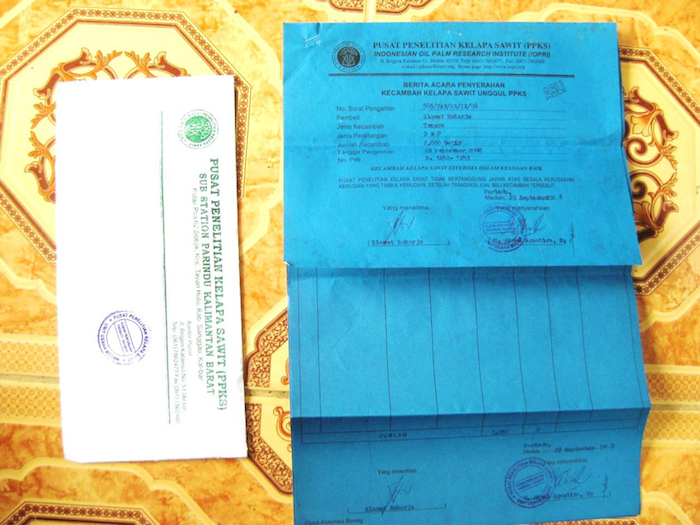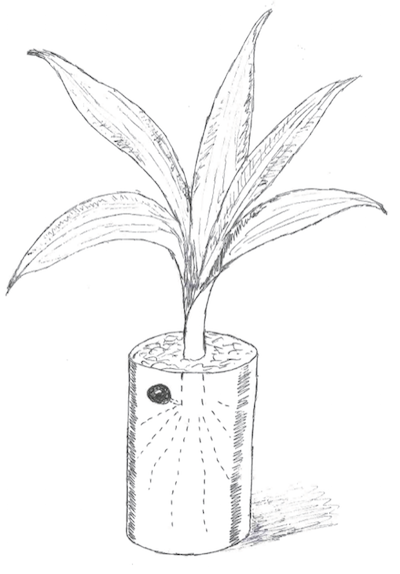Sustainable Oil Palm Farming / Buying good planting material
| |
Download: Module 1: Planting Material
Contents
Goal
- Get optimal yields for 25 years;
- Produce fruit bunches that contain a lot of oil;
- Get a maximum price for the fruit bunches and a good ‘return’ on fertiliser and labour.
Standard
- Planting material is 100 percent tenera;
- All planting material is certified and comes from a good breeding company.
Remarks
It is illegal for smallholders in Indonesia to buy non-certified seeds!
But:
- It is difficult for individual farmers to buy certified seeds. A land certificate is always required.
- The easiest way for farmers to buy certified seeds is by buying them as a group or cooperative.
- In Indonesia, PPKS give a discount for smallholder cooperatives buying seeds.
Timing
When buying the seeds or seedlings.
How
Buying the right seeds
Farmers who plant independently can make sure they buy the right seeds by following these key points:
- Buy seeds from a certified, reliable breeding company that can deliver the seeds directly to the farmer. Never use a ‘middleman’ or trader.
- Work together in cooperatives or farmers’ groups when buying seeds.
- Never buy seeds or seedlings from anyone other than reputable companies. Bad palms will give bad yields for 25 years!
- Look for a company logo. Good companies such as PPKS now put their logo on each seed (see Figure 7). If the logo is not there, the seed is fake! However, beware that there can also be fake seeds with fake logos — so the logo alone is still not enough.
- Ask to see a certificate. Reliable companies will always provide a certificate of authentication (see Figure 8).
In Indonesia, PPKS in Medan produces good quality oil palm seeds that can be trusted 1. They also have local offices in Kalimantan and Sumatra. For information, contact:
Pusat Penelitian Kelapa Sawit (PPKS)
JL. Brigjen Katamso, No. 51
Medan, North Sumatera, 20158
Phone: +62 61 7862477
Website: iopri.org
Testing the quality of seeds and seedlings
It is impossible to know for certain from a seed or a seedling if the plant is tenera, dura, or pisifera, but we know that certified tenera hybrid seeds always come from a dura mother, so they are all of the dura type with a thick shell. The type of seed or seedling can be identified through the following steps:
| Step 1. | Select 20 seeds at random, or collect 20 seeds from seedlings by carefully digging into the polybag to find the seed and then removing the seed without damaging the roots (see Figure 9). |
| Step 2. | Open all the seeds with a hammer and check if the shells are thick (dura) or thin (tenera):
|
Note: This kind of check is not a good replacement for buying certified seeds. Some seed traders will buy dura bunches only, so planting seeds without a good certificate is always a big risk, even after testing them.
Data recording
It is important to record all activities carried out in the plantation. The table below gives an example.
| Date | Time | Location | Activity | Input type | Input amount | Input costs | Labour input | Labour costs | |
| People | Hours | ||||||||
| 16/01/13 | Field 3 | Buying seeds | PPKS seeds | 150 | 1.5 million Rp | ||||
References
- ↑ IOPRI, 2012, Purchasing procedures (tata cara pembelian), International Oil Palm Research Institute, Medan, http://www.iopri.org/cara-pembelian.html, Accessed April 7 2016.
Acknowledgements
The material from Buying good planting material is sourced from Smallholder Oil Palm Handbook and put together by Lotte Suzanne Woittiez (Wageningen Universit) and Haryono Sadikin, Sri Turhina, Hidayat Dani, Tri Purba Dukan, and Hans Smit (SNV) in August 2016. See Module 1: Planting Material for more information.






